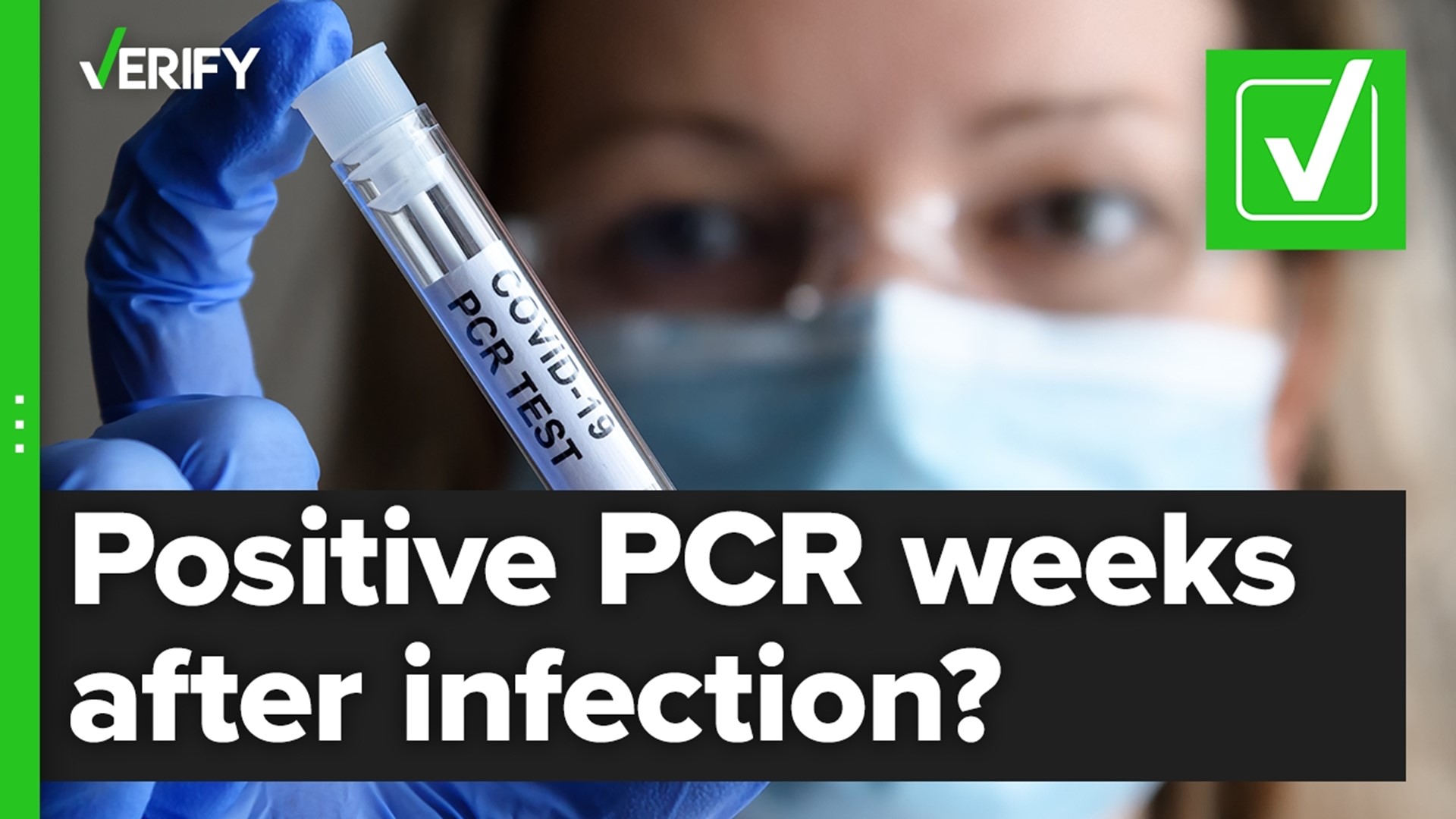On Dec. 27, the Centers for Disease Control and Prevention (CDC) shortened its isolation guidance for certain people with COVID-19. People who are infected are now advised to isolate for five days if they are asymptomatic or their symptoms are resolving, followed by five days of recommended mask-wearing around others. Previously, the CDC advised people with COVID-19 to isolate for 10 days.
But some people have been critical of the CDC’s updated guidance because there is no recommendation for people to test negative for COVID-19 before ending their isolation. In response, CDC director Dr. Rochelle Walensky told ABC’s "Good Morning America" that one of the reasons there’s no negative test recommendation is because PCR tests "can stay positive for up to 12 weeks."
THE QUESTION
Can you test positive for COVID-19 on PCR tests for up to 12 weeks after infection?
THE SOURCES
- MedlinePlus
- Cleveland Clinic
- University of Texas Southwestern Medical Center
- Public Health Agency of Canada
- United Kingdom Department of Health and Social Care
- Studies (here and here) on prolonged PCR positive tests
THE ANSWER
Yes, you can test positive for COVID-19 on PCR tests for up to 12 weeks after infection.
WHAT WE FOUND
There are two types of diagnostic tests used to detect COVID-19 in the U.S. One is an antigen test, commonly called a rapid test because results are available in minutes. The other is a molecular test, which is often a polymerase chain reaction (PCR) test.
PCR tests involve a lab process that can detect the genetic material of SARS-CoV-2, the virus that causes COVID-19. That’s why it typically takes a couple of days to get results. The PCR tests are more sensitive than antigen tests, meaning they are more likely to accurately identify a COVID-19 case. For that reason, the PCR test is considered the “gold standard” for diagnosing COVID-19, according to the Cleveland Clinic.
While the high sensitivity is reliable for first diagnosing people with COVID-19, it’s far less reliable for determining if someone is still infectious with the virus.
“Because the PCR test is so sensitive, it can detect very small amounts of virus material,” the Cleveland Clinic explains. “This means that the test can continue to detect fragments of SARS-CoV-2 virus even after you’ve recovered from COVID-19 and are no longer contagious.”
Fragments of the virus material can be detected three months later, according to the University of Texas Southwestern Medical Center. Health agencies in Canada and the United Kingdom also recognize that PCR tests can have positive results three months after a person was initially diagnosed with COVID-19.
This persistent positivity has been shown in studies.
One study retested 203 people who had recovered from COVID-19. Of the 203 people, 29 people had positive PCR tests weeks to months after they had recovered, including five people who were tested 85-105 days after recovery. Another study in Wuhan, China, found that of 378 people hospitalized with COVID-19, 36 still had detectable levels of SARS-CoV-2 genetic material more than 30 days after they were diagnosed with the virus – the longest being 83 days.
The CDC says no studies have found evidence that people who continue to test positive for COVID-19 weeks after they’ve recovered transmit the virus to others.
CDC director Walenksy was asked in a Dec. 29 White House press briefing why negative antigen tests aren’t part of the recommendations for ending isolation. Walensky said it’s not known if a positive antigen test is a sign that a person is still infectious.
“We do not know how well those antigen tests perform at day five in detecting transmissibility,” Walensky said. “And it is for that reason that we would say, even if you had a negative test, we would want you to mask, and even if you had a positive test, we would also want you to mask. And therefore, given that these antigen tests are not authorized for use in this way, we did not recommend them at that time.”
In a Jan. 2 interview on ABC’s “This Week,” Dr. Anthony Fauci, the director of the National Institute of Allergy and Infectious Diseases, said the CDC is aware of the criticism over not recommending a negative test to end isolation after five days. He said that aspect of the CDC’s guidance is now “under consideration.” However, the CDC updated its isolation guidance on Jan. 4 and still did not include a negative test recommendation.

